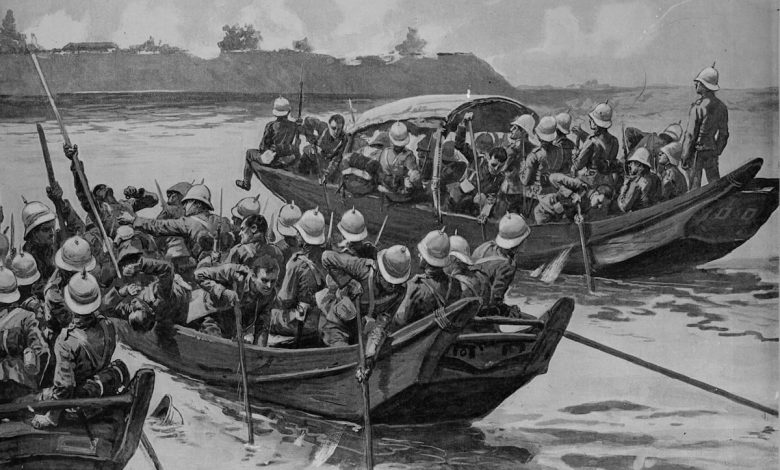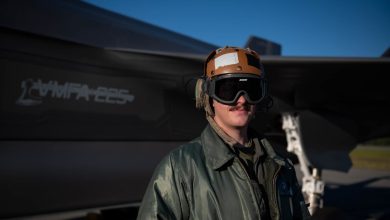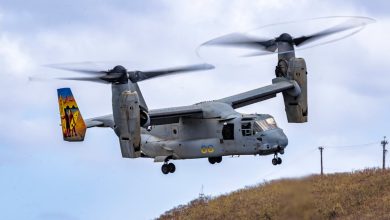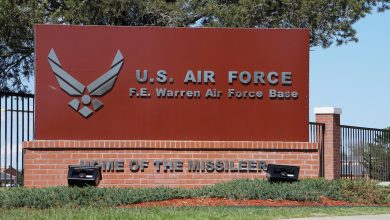‘Keep up the fire’: The Boxer Rebellion and the Marines who fought it

Since its inauguration in 1862, the Medal of Honor has gone through an evolutionary standard. Until World War I, many of the deeds that led to their award were not described in convincing detail. Sometimes it took a witness of the act of heroism to supply those details. An early case in point occurred during the Boxer Rebellion.
On Oct. 18, 1899, a Chinese nationalist movement called the Society of Righteous and Harmonious Fists, or Boxers by foreign observers, rose up against the seven concession cities representing the Western imperialist powers on Chinese soil, also turning their wrath on merchants, missionaries, Christian converts and other westernized Chinese.
While the Europeans and Americans (the only dominant foreigners who did not hold any Chinese real estate) mobilized their forces in the Far East. Manchu Empress Tzu-Hsi (Cixi) initially opposed the rebellion, but in 1900 she committed the Imperial Army and its more advanced weaponry to helping the rebels.
For eight weeks, as Western embassies fought for survival in siege-like conditions, eight normally rival Western troops marched together for the common cause without an overall command.
On June 21, 1900, they tried to advance to Beijing through mud, open plain and high walls of Tientsin (Tianjin), only to be halted by Boxers and Imperial troops.
At 0800 hours on July 13, the Eight-Nation Alliance launched an all-out assault on Tientsin, involving British, Japanese, French and Americans, only to be pinned down by the Boxer and Imperialist forces until 2000, when the Alliance troops finally managed to disengage. It is from that situation that a handful of Marines caught their commander’s eyes.
Born in Heckscherville, Pennsylvania on Feb. 19, 1866, Alexander Joseph Foley was the son of an Irish coal miner who made up his mind to be anything but that. In 1888 he joined the Marine Corps, subsequently re-enlisting in 1893 and again in 1898, seeing his first combat in Cuba.
Rising to the senior noncommissioned officer rank of first sergeant, he was serving in the Philippines with the 9th Infantry Regiment under Col. Emerson Hamilton Liscum — a 60-year-old Army veteran of the Civil War, Indian Wars, Spanish-American War and Philippine-American Wars — when word came in about the Boxer Rebellion and his unit joined the international 50,000-man expeditionary force marching on Tientsin and on the besieged legations in Beijing.
Serving alongside Foley, Sgt. Clarence Edward Sutton had a more troubled military career. Born to merchant Thomas E. and Emily Sutton in Urbanna, Virginia, on Feb. 18, 1871, he had entered Virginia Military Institute on Aug. 18, 1885, but was held back a year to the class of 1890 and resigned without graduating in 1888.
In June 1899, he traveled to the Navy Yard in Washington, D.C. and enlisted in the Marine Corps and, after being assigned to the 9th Infantry, served in the Philippines before shipping out to China.
The struggle for Tientsin involved 6,000 Westerners against a mixed bag of Boxers and better-armed Imperial soldiers. Shortages of ammunition limited the 9th Infantry to 180 rounds per man and it suffered nine casualties as it fought alongside the British Naval Regiment. Among those killed was Col. Liscum, who was leading the assault when he saw the color bearer shot down. As he went to retrieve the regimental colors, he was shot in the abdomen by an Imperial rifleman. His last words to his men were allegedly “Keep up the fire” — still the motto of the 9th Marine Regiment.
Among the 9th Infantry’s most grievous casualties was Maj. James Regan, who was wounded and under fire on open ground.
What followed was officially declared “meritorious combat” on the part of Foley, Sutton, Sgt. John Mapes Adams and Boatswain’s Mate 1st Class Harry Chapman Adriance.
To that terse summation, however, was an added citation: “Although under heavy fire from the enemy, Sutton assisted in carrying a wounded officer from the field of battle.”
Another more detailed citation came Foley’s way: “In the presence of the enemy in the battle near Tientsin, China, July 13, 1900, Foley distinguished himself by meritorious conduct.”
Adding the most to the four Marines’ merit, however, was the testimony by the officer whose life they’d saved, Maj. Regan:
“It was with the greatest of difficulty and persistence in their noble work that they got me off the field. They placed me on an improvised litter made of two flannel shirts and two rifles. I was a heavy man and with the greatest care over the roughest kind of ground, under fire, they carried me to the marine hospital in the city, a distance of about three miles…. such men are worthy of all the distinction the Government can confer upon them.”
On July 14 the Alliance forces finally fought their way into Tientsin, bringing an end to the bloodiest battle of the rebellion. The defenders at Beijing were finally relieved and on Sept. 7, 1901 the Imperial government formally surrendered, unwittingly laying the groundwork for its own demise in 1912.
At the U.S. Marine garrison at Cavite, on May 11, 1902, six Marines were awarded the Medal of Honor: 1st Sgt. Alexander J. Foley, Sgt. Clarence E. Sutton, Cpt. Andre W. Brewster, Sgt. John Mapes Adams and Cpl. Edwin Nelson Appleton.
Those cited for their role in saving Maj. Regan did not live long thereafter. Alexander Foley died while on duty in Culebra, Puerto Rico, on Jan. 14, 1910, and was buried in the municipal cemetery.
Clarence Sutton rose to first sergeant, but in 1909 he resigned from the service due to failing health. He died on Oct. 19, 1916, and is buried at Arlington National Cemetery.
Read the full article here









